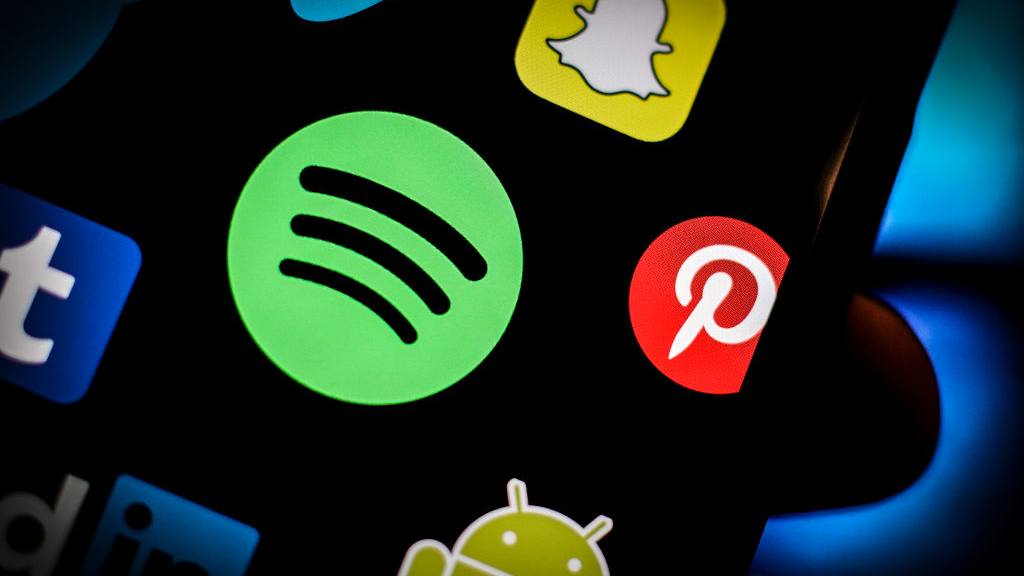"If creators are using these technologies... we should let people listen to them": Spotify co-president says AI-generated music is welcome on the streaming platform
Gustav Söderström says Spotify will host AI-generated music, but won't generate its own, warning that other streaming services could generate AI music in-house - at the expense of real musicians

Want all the hottest music and gear news, reviews, deals, features and more, direct to your inbox? Sign up here.
You are now subscribed
Your newsletter sign-up was successful
Most MusicRadar readers will be aware that music-making tools powered by generative AI have seen dramatic progression in recent years. Having allegedly hoovered up the entirety of recorded music without legal authorization, platforms like Suno and Udio are now capable of generating entire songs at the click of a button.
Generative tools like these have presented the music industry with a catalogue of urgent questions both ethical and practical - questions which artists, labels and streaming platforms are only beginning to grapple with.
Should artists be compensated by platforms that have trained their AI models on copyrighted music? If someone makes a song with AI, do they deserve the same kind of rights and compensation as a traditional musician? Should music be labelled as AI-generated on streaming services, so that listeners are aware of its origin? In the long run, is AI going to amplify creativity - or replace people?
It's this final question that Spotify co-president Gustav Söderström answered during a recent episode of the Big Technology podcast, giving us a clearer picture of how the world's most popular streaming service intends to face the issues raised by the development of generative AI.
"It's amplifying creativity," Söderström tells host Alex Kantrowitz. "It's giving more and more people access to be creative. You need even less motor skills than on a piano. You need less technical skills than their own [digital audio] workstation. So I think of them as tools."
After Söderström makes a distinction between completely AI-generated music and music that uses AI only for specific elements of a song, Kantrowitz asks him directly if Spotify wants to host music on its platform that is 100% AI-generated.
"We're a tool for for creators," he replies, "and if creators want to use A.I. to enhance their music, as long as we follow the legislation and copyright laws, we want them to be able to monetize their music and pay out, right?"
Want all the hottest music and gear news, reviews, deals, features and more, direct to your inbox? Sign up here.
Kantowitz suggests that Spotify could eventually fill up with songs that are entirely AI-generated, in the same way that AI-generated images are fast becoming some of the most popular content on social media platform Meta. "If these songs are generated by AI music generators become engaging, and they follow the rules, is that good for Spotify?" he asks.
Söderström's view is that AI-generated music, as long as it's created in such a way that it doesn't violate copyright law, should be welcomed on the platform. "If creators are using these technologies — where they are creating music in a legal way that we reimburse and people listen to them — and are successful, we should let people listen to them."
Where Söderström draws the line, however, is the possibility of Spotify generating and hosting its own AI-based music; music that the platform would own and thus not be obliged to pay royalties for. "I don't think it's our job to generate that music instead of the creators," he says.
"There's the question, should we generate all the music ourselves? And that's where we're saying, 'No, we're not going to generate that music.' But maybe other platforms will, because it's cheap content, right? We decided what we want to be in this world, and it's a platform for creators."
Spotify's decision not to produce its own AI-generated music is a welcome one; many have speculated that this might be an option that the streaming giant chooses to explore, considering its profit-boosting potential. However, as Söderström says, there's nothing stopping other streaming platforms leveraging AI to generate this kind of "cheap content" while taking money out of the pockets of real artists.
Before we congratulate Spotify too warmly, though, we should recall that earlier this year, the platform adjusted its royalty model so that all tracks receiving less than 1000 plays annually (around two thirds of its entire catalogue) would be completely demonetized, with no royalties paid to their creators.
Late last year, Spotify announced that it would be cutting 1,500 jobs, around 17% of its workforce. Earlier this month, the streaming service reported record profits for Q3 2024, with an operating income of €454 million and total revenue of €4 billion.

I'm MusicRadar's Tech Editor, working across everything from product news and gear-focused features to artist interviews and tech tutorials. I love electronic music and I'm perpetually fascinated by the tools we use to make it.
